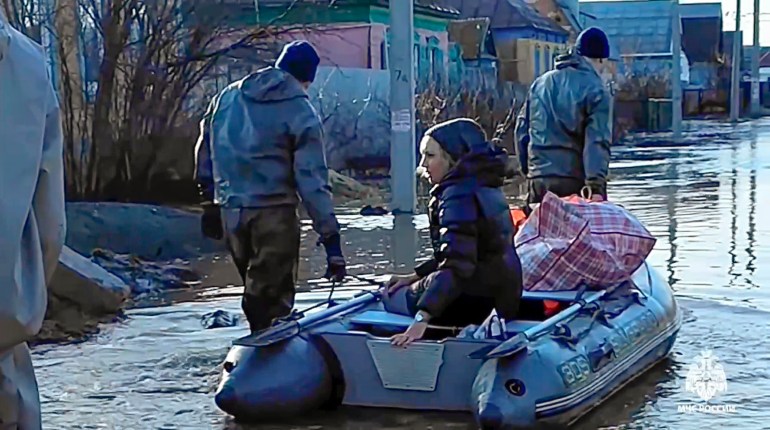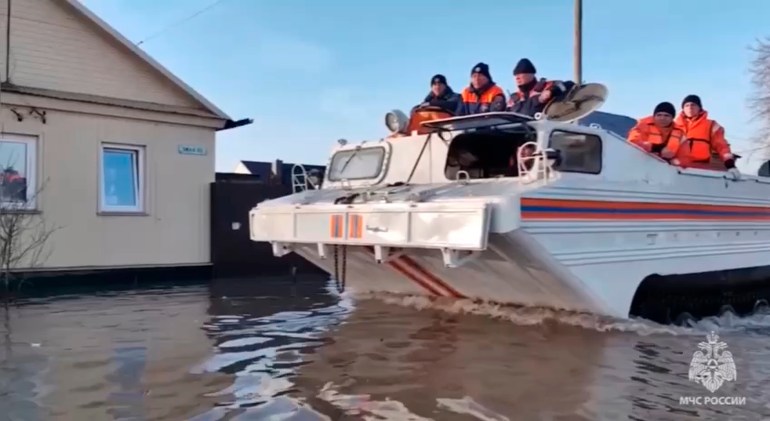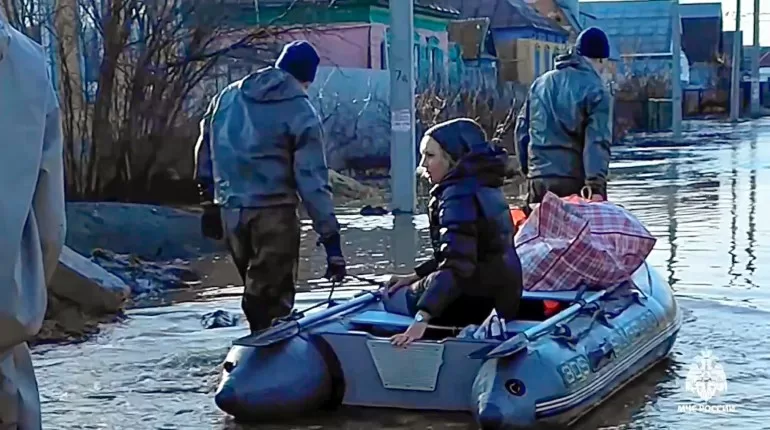The floods, caused by rising water levels in the Ural river, force thousands of people to evacuate.
Floodwaters are rising in two cities in Russia’s Ural Mountains after Europe’s third longest river burst through a dam, flooding at least 6,000 homes and forcing thousands of people to flee.
A string of Russian regions in the Ural Mountains and Siberia, alongside parts of neighbouring Kazakhstan, have been hit in recent days by some of the worst floods in decades.
The Ural river, which rises in the Ural Mountains and flows into the Caspian Sea, swelled several metres within hours on Friday due to melt water, bursting through a dam embankment in the city of Orsk, 1,800km (1,120 miles) east of Moscow.
Russia’s Emergencies Minister Alexander Kurenkov arrived in Orsk – one of the most hard-hit cities – on Sunday to supervise rescue operations.
“I propose classifying the situation in the Orenburg region as a federal emergency and establishing a federal level of response,” the minister said, according to state news agency RIA Novosti.

More than 4,000 people were evacuated in Orsk as swaths of the city of 230,000 were flooded. Footage published by the Ministry of Civil Defence, Emergencies and Disaster Relief showed people wading through neck-high waters, rescuing stranded dogs and travelling along flooded roads in boats and canoes.
The Orenburg region’s governor, Denis Pasler, said the floods were the worst to hit the region since records began.
Flood warnings were issued in other Russian regions and Kurenkov said the situation could get worse very fast.
“The water is coming, and in the coming days its level will only rise,” said Sergei Salmin, the mayor of Orenburg, a city of at least 550,000 people. “The flood situation remains critical.”

Russian media cited Orenburg region authorities as estimating the cost of flood damage locally as about 21 billion roubles ($227m), and saying that floodwaters would dissipate only after April 20.
Kurenkov said bottled water and mobile treatment plants were needed, while local health officials said vaccinations against hepatitis A were being conducted in flooded areas.
Local officials said the dam in Orsk was built for a water level of 5.5 metres (18 feet) yet the Ural river rose to 9.6 metres (31.5 feet).
Federal investigators opened a criminal case for negligence and the violation of safety rules over the construction of the 2010 dam, which prosecutors said had not been maintained properly.
The Orsk Oil Refinery suspended work on Sunday due to the flooding. Last year, the refinery processed 4.5 million tonnes of oil.
In Kazakhstan, President Kassym-Jomart Tokayev said on Saturday the floods were his country’s largest natural disaster in terms of scale and impact for 80 years.
